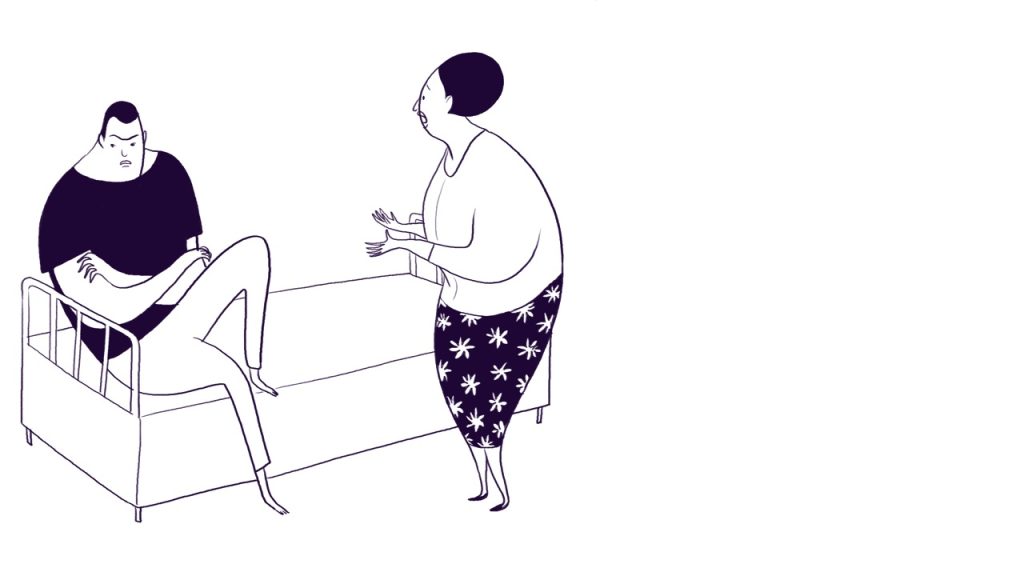Are You Willing to Change?

Why should I change?
The authors of Beyond Addiction,* a guide for families of addicted loved ones, give us the following advice in the introduction of their book:
“Be yourself, but be as willing to change as you want your loved one to be.”
Reading this phrase may very well feel like a slap in the face. Or, it might feel like the most exhausting idea you’ve heard in a while. Or perhaps it speaks to you, rings true, makes you wonder.
While perhaps not a revolutionary concept, their suggestion strikes me as being full of common sense and wisdom.
Is it fair for us to expect – or even demand – that our loved one make significant changes to many parts of their life while we sit on a perch of certitude?
Has our struggle with our loved one’s addiction made us cling too tightly to what we think we know, and how we think we need to act?
Has black-and-white thinking become too prevalent? Our loved one and their troublesome behaviors is pushed over to one end of the spectrum (that which needs to change). On the other hand, we – consciously or not – position ourselves on the opposite end. We feel dependable, responsible, not addicted, and therefore not in need of change.
It could prove interesting to observe our initial reaction when someone suggests that we, too, may have things to work on or change. Feelings of defensiveness or denial might bubble up. This may help us to consider how our loved one might feel when we insist (sometimes day after day) that they’d better hurry up and change.
Nobody’s perfect
We’re all familiar with this phrase, but what’s actually hiding behind it? Is perfection the goal, even though, according to this saying, nobody’s ever gonna get there? Or is perfection just more black-and-white thinking?
When we really think about it, perfection does not exist in the human realm. In fact, it’s well known that much of what we learn, and what forges us into who we are, comes from our making mistakes. And life’s lessons are learned so much better when we open ourselves to really looking at what it is we did that got us in this fix.
Owning our weaknesses can truly be a strength
I may not have an addiction problem. Nor am I flailing around like a lost soul. I might not be causing everyone who loves me to worry . BUT, I may very well have areas of my life to which I can bring more honesty and openness, in order to embrace the change that I need. Because the change that I need is not the same as the change my loved one needs. Making that distinction is important. So much of our energy tends to be spent on what our loved one needs to change.
But what about you? Can these trying times with your loved one actually shed light on what you need the most? Is it possible for you step back a bit and redirect some of your focus from your loved one to yourself? Can you see willingness to change as a gift you can give to yourself, and your loved one?
What change are you willing to make?
Perhaps the change you need relates to how you communicate. Your usual ways might be getting old, you might feel the need to infuse your speech and attitude with more positivity or optimism. Perhaps it’s about to how you care for yourself. Could paying more attention to your body and spirit relieve some of the tension at home? Or perhaps it has something to do with letting go. Whether it’s guilt, shame, or the illusion of control, we so often hold on to things that are actually sinking us. Lightening that load by confiding in someone we trust, and practicing letting go of what we cannot change in others, can do us so much good.
As Foote, Wilkens and Kosank encapsulate so well in the above citation, our role as the family member of a struggling loved one is not limited to doing things for them. What we do for our own well-being (physical, mental, spiritual … ) will create a ripple effect that brings relief and much needed change, within us and all around us.
A membership at Allies in Recovery brings you into contact with experts in the fields of recovery and treatment for drug and alcohol issues. Our learning platform introduces you to CRAFT and guides you through the best techniques for unblocking the situation. Together we will move your loved one towards recovery. Learn more here.
*Jeffrey Foote, Ph.D, Carrie Wilkens, Ph.D, & Nicole Kosank, Ph.D ‘Beyond Addiction: How Science and Kindness Help People Change’
